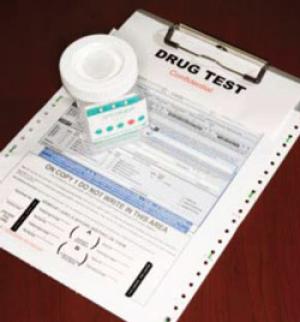The Republican-controlled Michigan House Friday approved a bill that would allow for the suspicion-based drug testing of welfare recipients. The bill, House Bill 4118, now heads to the state Senate.

It would require new welfare applicants to undergo a screening for drug use using an "empirically validated substance abuse screening tool," and if the screening indicates the likelihood of drug use, "the applicant is required to take a substance abuse test." The same procedure would apply to existing welfare recipients, who would be required to be screened annually.
Drug testing would be paid for by the state, unless the applicant or recipient tested positive. In that case, he or she would have to pay for the test.
People who tested positive on a drug test could continue to receive benefits if they enter drug treatment, while those refusing or failing to follow treatment would lose their benefits.
The Michigan legislature is following in the footsteps of a handful of other states that have passed public benefits drug testing bills, despite evidence in recent weeks that such programs have few tangible benefits. In Utah, for example, authorities screened more than 4,400 welfare applicants, but found only nine people who tested positive on drug tests.
This work by StoptheDrugWar.org is licensed under Creative Commons Attribution-ShareAlike 4.0 International
Comments
This article leaves out the
This article leaves out the fact that Michigan lost the very first lawsuit over this issue, after it created a TANF drug testing program in 1999. See Marchwinski v. Howard, 113 F. Supp. 2d 1134 (E.D. Mich. 2000). The decision striking down Michigan's law was upheld in the 6th Circuit.
Urge separating out cannabis from "drugs"
The proposed "pilot studies" may be an opportunity to achieve unexpected benefits if Republicans can be persuaded to drop their tobacco-lobby-inspired enmity to cannabis. Exempting cannabis from the test altogether could provide a message to welfare recipients that they are encouraged to try using cannabis as a SUBSTITUTE for whatever drugs actually endanger their ability to use pubic assistance in an appropriate way.
Now think: does it seem likely that tobacco use would be included among the drugs tested for? A pack-a-day habit can reach over $3000 a year in some states, would you want your tax money used to support that? Meanwhile a thrifty cannabis user, who gets 900 single vape tokes out of a $200 ounce and buys one ounce per year, might be at risk of flunking someone's test and being denied payments while the $igarette addict gets them?
Political note: Republican candidates regularly get twice as much tobacco industry money as Democrats, and the Republican voter base is said to be 20 percentage points more anti-cannabis-legalization than the Democratic. Hmmm?
In reply to Urge separating out cannabis from "drugs" by mexweeds (not verified)
Cannabis is still a drug, no
Cannabis is still a drug, no matter how you look at it. I agree with you about the tobacco, in my opinion if you can afford drugs, alcohol or tobacco, you can afford food for your family. If you can't provide for your family but can afford your addiction, you don't deserve a family simply because you are putting your addiction before your children.
Add new comment